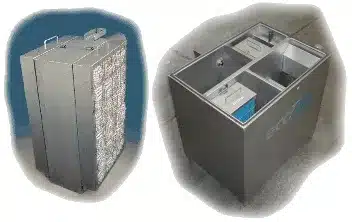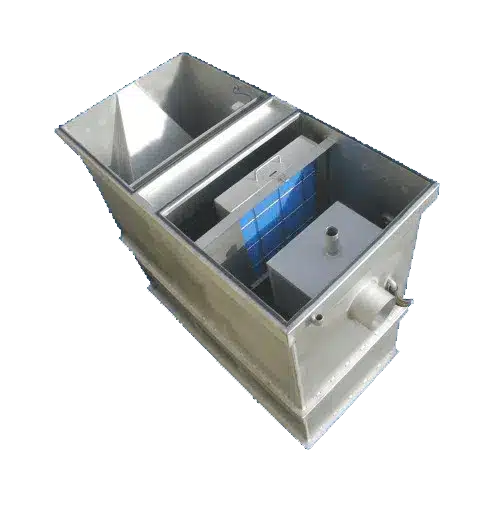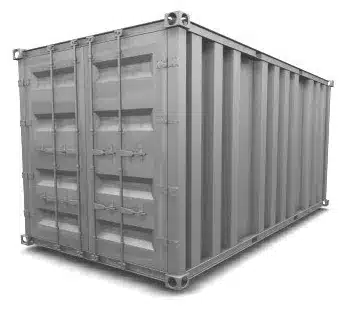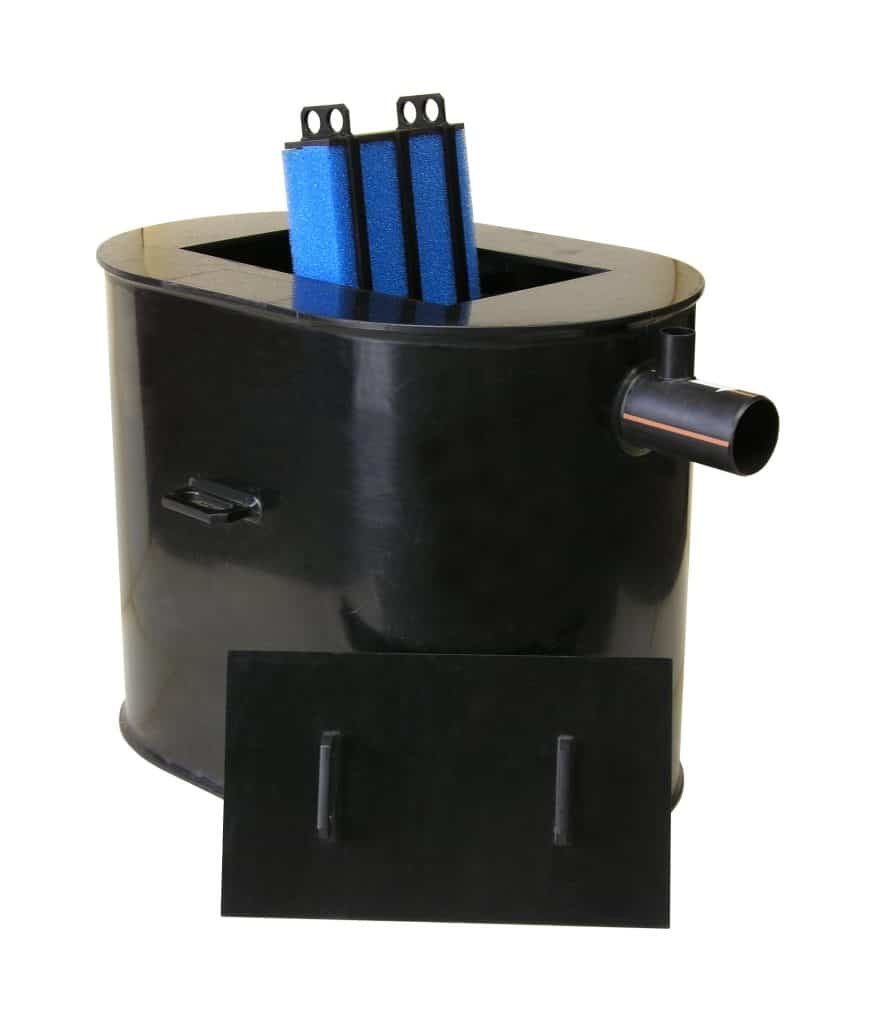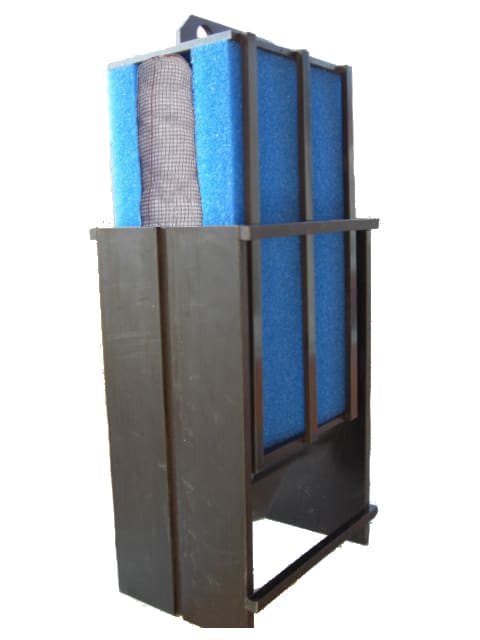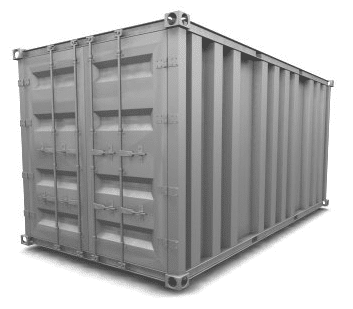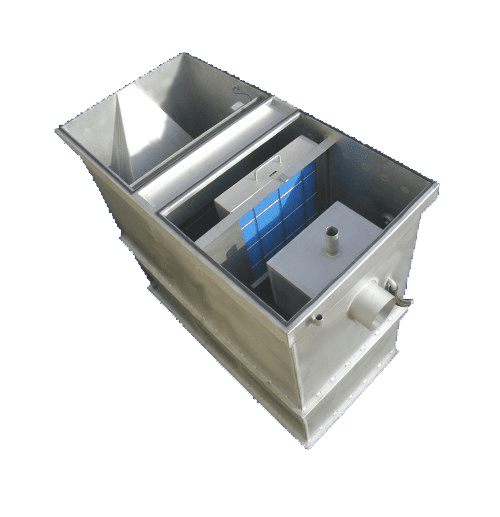Do you know how important oil water separators are in Louisiana’s oil and gas industry? These systems are key to keeping the environment safe and making sure production runs smoothly. Freytech Inc. is at the forefront, offering top-notch Louisiana Above Ground Oil Water Separators. They’re changing the game in how we treat produced water and set new standards for separation technology.
In Louisiana’s oilfields, these advanced systems are vital for removing oil from water accurately. Freytech’s cutting-edge approach ensures water is discharged at just 5 PPM, well below North American limits. This innovation not only meets environmental rules but also increases efficiency for Louisiana’s oilfield equipment.
Key Takeaways
- Louisiana Above Ground Oil Water Separators are crucial for environmental compliance
- Freytech Inc. offers state-of-the-art separation technology for oilfield operations
- Advanced systems achieve separation efficiency as low as 0.1 PPM
- Oil water separators effectively treat various hydrocarbons, including motor oil and jet fuel
- Enhanced coalescing technology exceeds industry standards for water treatment
Understanding Above Ground Oil Water Separators in Louisiana
Above ground oil water separators are key in Louisiana’s oil and gas industry. They help keep the environment safe and make the most of oil and gas resources.
Definition and Purpose
Oil water separators take out oil and other dirt from water. They are crucial in onshore separation technology. They make sure oil and water don’t mix, making it safe to use or release the cleaned water. API separators use gravity to separate oil and water because they have different densities.
Importance in Louisiana’s Energy Sector
Louisiana’s energy sector depends a lot on these separators. They stop oil spills, protect water, and keep oil and gas operations going. By using the latest in separation tech, companies can work better and follow environmental laws.
Regulatory Requirements
The oil and gas industry in Louisiana has to follow tough environmental rules. These rules set limits on what can be discharged and how well water treatment systems work. Modern oil water separators are made to meet and often beat these rules. This helps companies avoid fines and keep their licenses.
Types of Louisiana Above Ground Oil Water Separators
Louisiana’s energy sector uses various above ground oil water separators. These are key for keeping the environment safe and operations running smoothly. The oil and gas industry in the state has different separators for different needs and conditions.
API separators are a top choice in Louisiana for onshore separation technology. They use gravity to separate oil from water. This makes them perfect for big operations with lots of flow. API separators are a big part of the state’s hydrocarbon recovery units, processing a lot of oilfield wastewater.
Enhanced coalescing systems are another type used in Louisiana. These units use special media to help oil droplets merge better, leading to better separation. They’re great when API separators don’t quite meet the needed cleanliness.
Customized solutions are also common in Louisiana’s oil and gas industry. These separators are made to solve specific problems, like different oil levels or unique environmental factors. By customizing the technology, these units work best for various oilfield tasks.
Choosing the right separator depends on things like flow rates, oil levels, and discharge standards. Freytech Inc. offers many separator options. Each one is designed for Louisiana’s energy needs and follows strict rules.
Benefits of Advanced Separation Technology
Advanced separation technology is a game-changer for Louisiana’s oil and gas industry. These systems offer top-notch performance in treating produced water. They ensure the environment stays safe and help recover hydrocarbons efficiently.
Enhanced Coalescing Technology
Modern oil water separators now use enhanced coalescing technology. This new method helps separate oil droplets from water better. The outcome is cleaner water and better hydrocarbon recovery units. This benefits both the environment and oil companies.
Achieving Superior Separation Efficiency
Advanced separation systems are incredibly efficient. They can produce discharge water with oil content as low as 5 parts per million (PPM). This high standard ensures the water meets strict environmental laws. These systems are key for keeping the environment safe.
Meeting and Exceeding Discharge Limits
North America has rules that limit hydrocarbon discharges to 10 PPM. Advanced separators go beyond these limits. Some can remove trace amounts of emulsified oil down to 0.1 PPM. This shows how effective modern produced water treatment is in protecting the environment.
Choosing the Right Oil Water Separator for Your Project
Choosing the right Above Ground Oil Water Separator is key for Louisiana oilfield projects. You should think about flow rates and oil concentrations. These factors help pick the best equipment for your oil and gas facilities.
Factors to Consider in Selection
Think about the specific needs of Louisiana’s oil industry. The right separator makes sure you follow local laws and works well. Look at your project’s needs to find the best equipment for your oilfield.
Customization Options for Specific Needs
Every oilfield project faces different challenges. Custom solutions can solve these problems. You can design oil-water separation systems that fit your specific goals and space needs in oil and gas facilities.
Installation and Maintenance Considerations
Getting your separator installed right and keeping it maintained is crucial for its long life. Think about how easy it is to install and maintain when choosing your separator. This way, your Louisiana oilfield equipment will work well for a long time. For help picking the right separator, talk to experts who can guide you.
These separators are crucial in storm water systems. They process runoff to meet the US EPA’s Clean Water Act standards. With effective oily water treatment, facilities protect the environment and dodge big fines.

